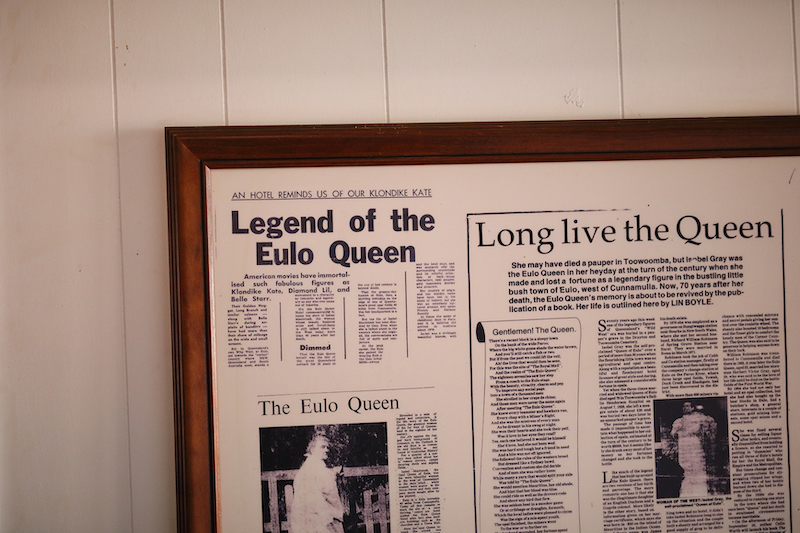
established in 1886
The story of the Eulo Queen is the story of the great, late Isabel Gray. Thought to have been born in 1851 her first marriage certificate recorded her as born in England, the daughter of an army captain. Things had changed it seemed by the time of her second marriage in 1871 where she was then recorded as being born in Mauritius!
Her back story included a good education in Switzerland and then in 1868 she was sent to Australia. In Australia she married again, only to be widowed a few years later and in 1871 she married Richard William Robinson with whom she became hotel-keepers in Eulo in 1886. Eulo was a gathering place for travellers and wayfarers and the Robinsons acquired further licenses to run a butcher shop and store. But the cunning Isabel began to conduct business outside of the boundaries of the hotel beguiling her guests in other ways. Her seemingly complaisant husband allowed her to freely fraternise with travellers in exchange for opals - for which she acquired a feverish penchant. So captivated was she by the gems she used them as currency in exchange for her services and adorned her self lavishly from head to toe in the stones, including a glamorous girdle fashioned with alternate large stones and nautilus shells. She was said to have some physical beauty, but her talent was surely her ability to enrapture her male counterparts with ease.
One report says: "About this time the legend of the Eulo Queen began. Although short, Isabel probably possessed some personal beauty with the physical sumptuousness so esteemed by contemporary males…her bedroom was a scene of great activity. A stock of liquor there helped her to entertain groups of gentlemen with conversation and gambling. More intimate entertainment was available.”
Isabel and Richard suffered a tempestuous relationship and when he died some years later, Isabel married yet again in 1903 - just one year on from his death. This time the groom, Herbert Victor Gray, was a 29 year old Tasmanian and Isabel was 53 - although she claimed to be 35!
As EuIo's importance faded due to the development of better roads, new railway travel and a slump in opals, so too did Isabel's. By 1926 she was of living in poverty at Eulo, surviving only on a widow's pension.
On 7 August, 1929, she did in Willowburn Mental Hospital in Toowoomba and was buried in Toowoomba cemetry. Her fortune? Just 30 pounds left in her will.
Her life was a series of re-imaginings and reincarnations, never sullied by her previous endeavours or what the gentle folk thought of her. Although short in stature, the tall tales of the Eulo Queen live on at the Eulo Queen Hotel and she imbues every hall of the pub itself today.